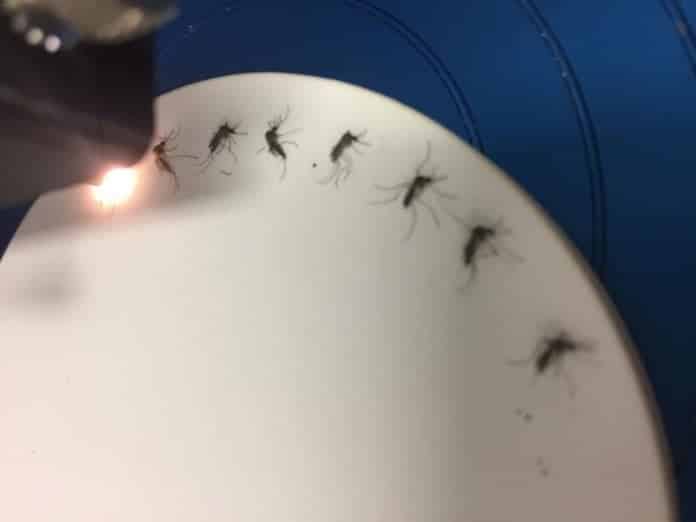Zika Detection in Mosquitoes Just Got a Whole Lot Simpler
The hastening international spread of arboviruses, for example Zika virus (ZIKV), highlights the need for much more proactive mosquito surveillance. But a significant challenge during arbovirus outbreaks has been the absence of rapid and economical tests for pathogen detection from mosquitoes.
Now, scientists at the University of Queensland and colleagues in Brazil have developed a cheap, yet effective tool that could save lives by helping health authorities target mosquitos infected with Zika virus.
“We can quickly identify mosquitoes that are infected with the Zika virus so public health authorities can treat affected areas before the disease spreads to humans,” Dr Maggy Sikulu-Lord, a University of Queensland researcher who developed the tool with colleagues in Brazil, said in a statement. “This is definitely going to be a game-changer in disease surveillance, especially in the prediction of disease outbreaks.”
The team discovered that Zika-carrying mosquitoes can be identified a non-invasive technology known as Near Infrared Spectroscopy(NIRS). This technique involves shining a beam of near-infrared light on a mosquito, and analyzing the distinct manner in which that light is absorbed and reflected by the little critters’ head and thorax.
The new tool, is believed
to be 18 times faster and 110 times cheaper than the current detection method, “only involves shining a beam of light onto mosquitoes and using that information to determine if the mosquito is infected,” said Sikulu-Lord. The team of researchers said they have so far achieved a 94 to 99 percent accuracy rate in identifying infected mosquitoes under laboratory conditions.Dr Sikulu-Lord hopes the World Health Organisation will use NIRS in countries where Zika is endemic. “We hope public health authorities can use it to predict future disease outbreaks and save lives by treating mosquito populations in time.”
She said the technology had potential to detect a number of diseases. “We hope to have results for detecting dengue and malaria in mosquitoes in the next few months. We don’t think it will eradicate diseases but it will give us the ability to detect diseases quickly so that we can stop disease outbreaks.”






























